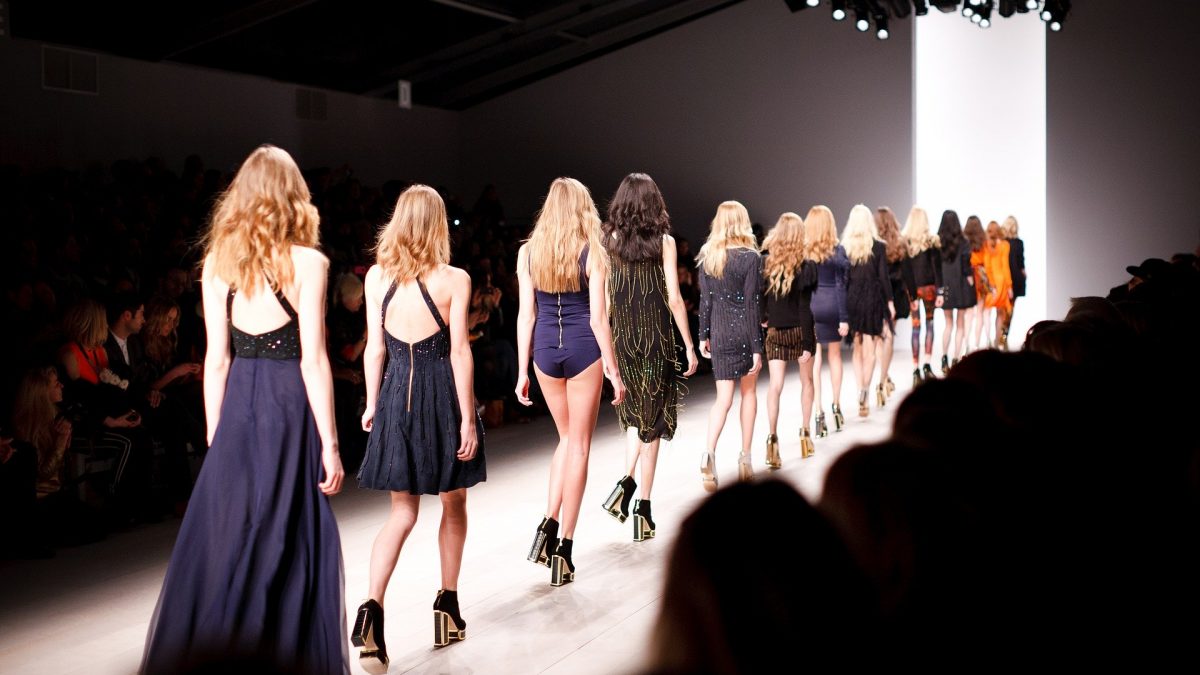
Desperate Times: Breaking Quarantine to Attend Court?
August 21, 2020Supreme Court sets Important Precedent for Members of Charitable Companies
August 23, 2020Article by Camilla Uppal (University of Kent LLB Graduate)
It’s not just office workers who have been adapting to working from home since the Coronavirus pandemic led to lockdowns around the world. Models and fashion brands have also adapted to the ‘new normal’, with some fashion brands employing models to carry out fashion shoots at home. In one creative WFH shoot, Bella Hadid modelled a $2,890 Bottega Veneta silk knit dress in a field with two goats named Funky and Bam-Bam.
However, social distancing rules have meant that numerous fashion events have been cancelled. In March, Vogue reported that Paris Fashion Week Menswear which was scheduled to take place from 23 to 28 June and Paris Haute Couture Fashion week, set for 5 to 9 July, would not be able to go ahead.
Elite World Group (“Elite”), the world’s largest model management network who represents over 3,700 models across the globe, including Kendall Jenner and Irina Shayk, has come up with an innovative solution.
Elite has created a new agency called EWG Virtual, which seeks to combine the real world with the virtual and provide opportunities for digital, social and virtual campaigns featuring the agency’s talent. The new agency will enable Elite’s clients to book digitised versions of real-life models for use in an array of events including virtual fashion shows, video games, live online events and on social media. EWG Virtual’s full-service operation will not only scan and digitise models into computer generated images (or CGI’s) but also create virtual environments for use in such events.
EWG Virtual will provide models with the opportunity to coextend their own brands and increase their opportunities to work no matter where they may be in the world. The plan is that the line up of virtual talent and their ability to create virtual fashion experiences will be ready by September 2020, in time for Fashion Month.
How does this affect law firms and businesses?
Law firm Bird & Bird, which prides itself on helping organisations being changed by technology and the digital world, recently advised on this cutting-edge joint venture between Elite and Phillip Mearman, a leading digital artist.
Bird & Bird’s corporate lawyers would likely have been involved in the contract negotiations in relation to the joint venture, in addition to coordinating due diligence required before the joint venture agreement was signed.
Intellectual property lawyers are likely to have been involved in trademarking the idea, in addition to setting out who will own the rights to the images created by the designer.
Employment lawyers are likely to have been involved in advising on employment contract issues that might arise from this innovative modelling agency.
There are environmental benefits that can be gained from adopting virtual fashion shows. Models, designers and regulars on the front row, or the “frow” as it is affectionally known in the industry, will be able to reduce their carbon footprints if they are no longer jetting around the world to attend various fashion shows. However, there could be a negative impact on the businesses that support the fashion industry, such as makeup artists, hairstylists and photographers who, like models, are considered independent contractors.
Will CGI models and virtual events replace the traditional runways?
Michel Gaubert, the fashion industry’s foremost soundtrack designer, doesn’t think so. When asked his opinion on Giorgio Armani’s livestream fashion show, Gaubert expressed that “films meant to replace shows can be very inspirational and strong, but their impact is not the same as seeing clothes worn on a runway, big or small.”
Natalie Kingham, the fashion and buying director of MatchesFashion, explains that “so much of fashion week is about relationships and conversations, and a community that encourages creativity”.
If Kingham and Gaubert are correct, this may mean that EWG Virtual will be utilised whilst social distancing measures are in place, and perhaps as a complimentary service after social distancing rules are relaxed, but will not be used as a long-term replacement for fashion events.
However, if the fashion industry does begin to favour the use of virtual models, this could raise some interesting legal and moral questions.
For example, if Kendall Jenner’s image is used instead of booking her in person, does this mean she will earn less? Will her hairstylist be paid royalties if the CGI version of Kendall is booked multiple times? What about her makeup artist?
Who will retain rights to their images, the agency or the model? What control will the model have over the image? Will modelling agencies put the models under pressure to feature in campaigns for a brand they do not want to be associated with? Will models be edited to be slimmer and more ‘perfect’ than they would look if they were walking in a ‘real’ catwalk?
What if the fashion industry stops using ‘real’ people altogether and relies solely on CGI models in an ‘automation’ of the modelling industry?





